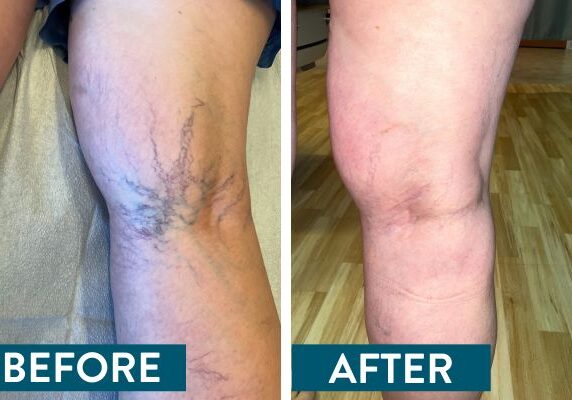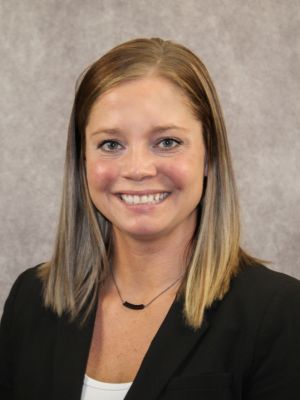Vein Treatment at Spooner Health
At Spooner Health, our trained team of providers offer treatment for a number of vein issues. For some people unwanted veins are a cosmetic issue, while other times vein issues can cause pain and discomfort. Based on your specific vein issues, an individualized treatment plan will be developed. Vein treatment has come a long way in recent years and our team is proud to offer safe, modern and effective vein treatment that produces long-lasting results.
Our team provides treatment for:
- Spider Veins
- Reticular Veins
- Varicose Veins
To get started with your free consultation, please call Nicole Perkins, APNP at (715) 939-1751.

"It has been absolutely life changing. I've been dealing with my spider veins for over 30 years, and I can finally wear shorts again. It has made me feel so much better about myself."
-Spooner Health Sclerotherapy Patient
Frequently Asked Questions
What are the different types of veins?
- Spider Veins: Mainly occurring on thighs, ankles, or calves, spider veins are the smallest veins and occur very close to the surface of the skin. These veins don’t carry a large blood supply so they can be easily treated. Spider veins do not typically cause pain or discomfort.
- Reticular Veins: Located close to the surface, reticular veins are similar to spider veins, but occur a little deeper. Commonly found in the legs, reticular veins can also occur on the face, breasts, ankles or knees. Veins typically appear blue/green or purple. Reticular veins can become painful or irritating.
- Varicose Veins: Occurring deeper in the skin, varicose veins are much larger and often come with underlying medical conditions. Varicose veins occur typically on the thighs, calves, ankles and feet.
Are vein issues common?
1 out of 4 Americans are affected by unwanted leg veins. 80% of those vein issues are cosmetic only. Women are more likely than men to develop varicose veins.
What causes vein issues?
Vein issues can be hereditary or caused by hormone imbalances (from pregnancy), prolonged sitting or standing, injury or other deeper vein issues.
What types of treatment are available?
- Spider Veins & Reticular Veins – Modern vein treatments called sclerotherapy are available to treat spider and reticular veins without surgery. Detergent sclerosing agents are used via injections. These agents allow the patient to experience minimal discomfort during and after the treatment compared to hypertonic saline treatments. Side effects are limited with the new treatment options.
- Varicose Veins – New technology called EVLT (Endovenous Laser Treatments) offers a fiber optic laser which treats the vein from within. Since varicose veins may be caused by an underlying medical condition, treatment is done by a trained general surgeon to ensure the best outcome.
What is sclerotherapy?
Sclerotherapy is a minimally invasive treatment for spider and varicose veins. Treatment is done by a trained specialist who injects a solution into the affected area, causing the vein to shrink and fade within a matter of weeks. The procedure doesn’t require anesthesia and takes under an hour. After the treatment, your provider will direct you on any specific at-home care instructions.
In recent years, a lot of progress has been made for vein treatment. The improvements to the sclerosing agents used have made the process much more effective and comfortable for the patient.
Is ongoing treatment required to resolve vein issues?
While treatment will typically eliminate the unwanted veins, “touch up” treatments may be needed due to the underlying issue that causes the veins. The initial treatment plan typically requires 1-3 treatments, but since everyone is different, our team will come up with an individualized treatment plan that works for you.
How to begin the treatment process:
- Set up a free consultation – At your initial consultation, you’ll meet with one of our vein specialists to examine your veins and discuss your goals. No referral is needed.
- Establish a treatment plan – After the initial consultation, an individualized treatment plan will be developed to achieve the best results for your specific vein issues.
- Begin treatment – Before your first session, your provider will ensure that your questions are answered and that you are comfortable proceeding with your treatment plan.





